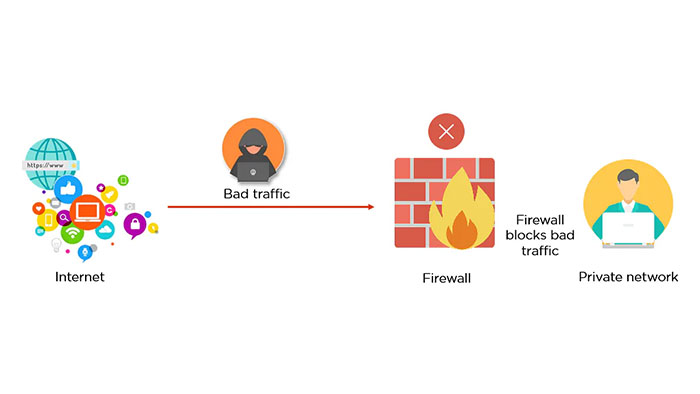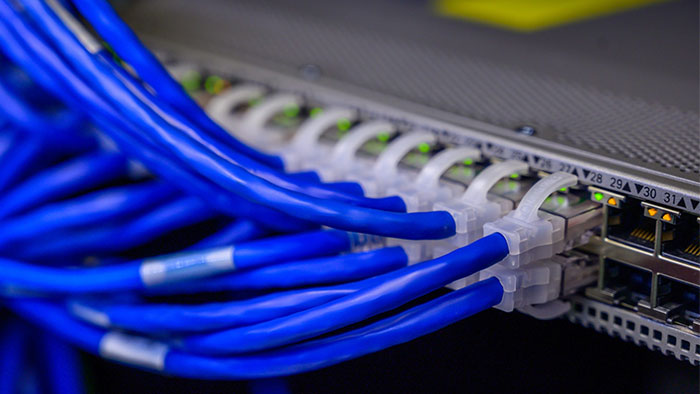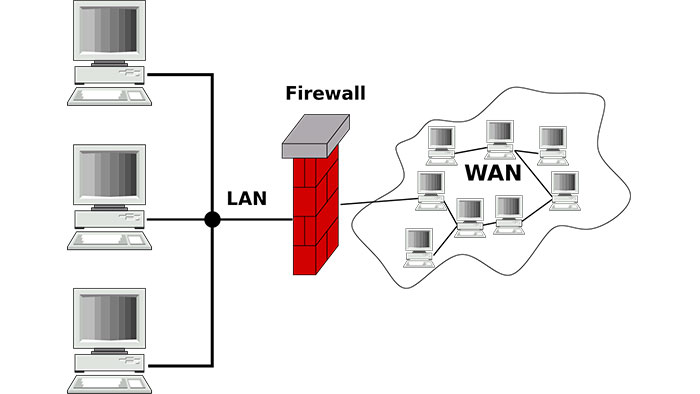Choosing a Firewall
Firewalls are tools designed to protect computer systems from hacking, intrusion, unauthorized access, and other attacks. Firewalls have gone through many evolutions to become what we have now. But how many years have firewalls been created?!
Firewalls have been around since the late 1980s. They started out as a packet filter, set up to check packets or bytes being transferred between computers. Although packet packets are still used, firewalls have come a long way to reach this point. Because technology has developed in recent decades.
Firewalls are classified as either a network-based system or a host-based system. Network-based firewalls can be placed anywhere in a LAN or WAN. A host-based firewall is deployed directly on its host to control network traffic or other computing resources. In fact, the firewall can be a service as part of the operating system or an operating program to protect the entire system.
Choosing the right firewall can be a challenging choice. You should pay attention to important points that can be very decisive. In this article we will talk about some important points in choosing a firewall.
How does the firewall work?
Firewalls receive inputs that are connected to a network (files and reports) and compare them based on their criteria. They also route the packets that are exchanged in the network, log the requests made to the internal network, and if they encounter something suspicious, they alert the system administrator about the problem. Now that you are familiar with the functionality of firewalls, it is your turn to get familiar with the types of firewalls, software firewalls and the features of the best network software firewalls.
Types of Firewalls
Firewalls are divided into two types: software and hardware
What is a network software firewall?
Network firewalls establish the security of the entire network and have two types of hardware and software firewalls. The hardware firewall is installed on the hardware by the firewall manufacturing companies and is installed as an external part in the path of the router or outside of it.
On the other hand, a software firewall is installed and launched on the system to create security and control incoming and outgoing data. Network software firewalls can protect the network under its control. The variety of network software firewalls is very large, but it should be noted that one of the best features of the software firewall is to reduce the system load.
What is a hardware firewall?
A firewall device or a hardware firewall is a device that is placed between the Uplink and the user’s system and limits the network traffic based on the applied security settings.
But what is Uplink? The uplink actually provides the user with incoming traffic from public or private networks. The user system can also mean a server, home desktop computer, a WFH system or a node in the concept of Internet of Things.
Currently, Paolo Alto Firewalls, Cisco Secure Firewalls and Fortinet Fortigate Firewalls count as the best firewall solution in the industry.
How useful is a hardware firewall?
Firewalls are an integral part of an organization’s security. According to the 2020 report of Palo Alto Networks, the use of firewalls is currently one of the first security measures companies take to protect their infrastructure.
According to this report, 96.6% of companies and organizations use firewalls. 53.8% of them use web firewalls in addition to hardware firewalls. Also, more than 1 out of every 4 companies use only hardware firewalls.
Tips on choosing the right firewall
Do not pay too much attention to the additional features of firewalls
Information technology is becoming more complex day by day and the competition in the enterprise firewall market is also becoming more intense. Therefore, firewall vendors often integrate more functions into their firewall products to increase their market share to increase market competition.
In this regard, we want to see if these additional features are required for our business. For example, some firewall products integrate VPN functions, but VPN services can be implemented not only in firewalls but also in routers.
If companies have high VPN needs, they can purchase a dedicated VPN server instead of purchasing a firewall that can implement VPN.
In addition, some additional functions can consume firewall resources. When many services are running on the firewall, the overall performance of the firewall will decrease. Therefore, when we choose a firewall, we need more practical functions.
Do not count much on laboratory data
In the firewall specification, there are some figures such as throughput, concurrent sessions, etc. We should not pay too much attention to these figures.
These figures are mostly experimental data. In other words, the data is obtained under relatively reasonable conditions with relatively few interfering factors.
However, the network environment of many companies now does not meet laboratory standards.
When we use a firewall in a real environment it often affects the effective functioning of the firewall because there are many hosts in the network.
On the other hand, we cannot just look at a specific index. When choosing a firewall, you should refer to dozens of indicators. If the production power reaches 10G but other indicators are weak, this type of firewall is not suitable.
Therefore, the network manager should test the desired firewall product in combination with his company’s network environment to know whether this enterprise firewall is suitable for the company or not.
Do not count on reviews
When choosing a product, we like to read its reviews online. We would love to know what other customers think about this product.
However, be aware that firewall vendors may hire writers to help them sell their devices. We can read these reviews but we shouldn’t believe all of them.
Do not forget the real needs of your organization
Many people have a bad habit when buying network equipment. They don’t first consider what the company needs to achieve it, but they first consider the network equipment.
For example, when a company needs to buy a firewall, they don’t first consider how the company will use the firewall to achieve it. But first they check the firewall market to see the difference between different firewall products and their functions.
Therefore, when buying a firewall, first consider what purpose your company needs with the firewall, and then choose a product that can provide the corresponding functions according to these goals.



